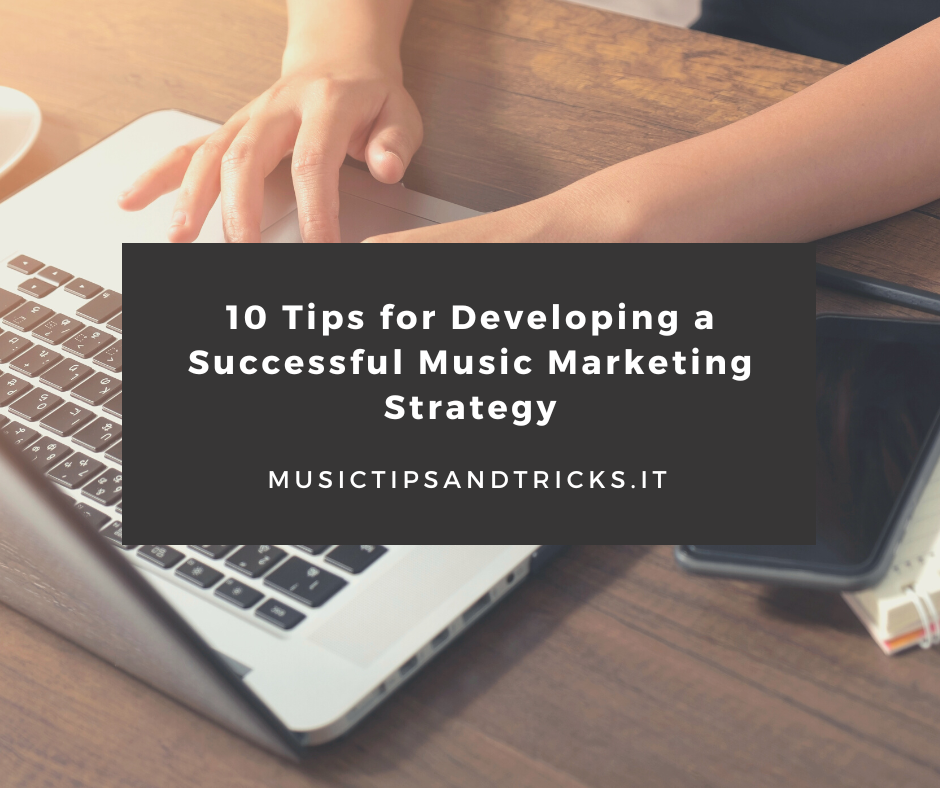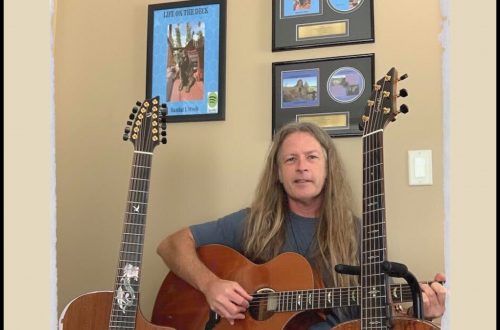
10 Tips for Developing a Successful Music Marketing Strategy
As a musician, it’s important to have a strong online presence and use effective marketing tactics to promote your music and reach new fans. Music marketing is an essential part of building a successful career in the music industry, and can help you connect with your audience and grow your fan base. In this blog post, we’ll share 10 tips for developing a successful music marketing strategy.
- Identify your target audience. Before you can start developing your music marketing strategy, it’s important to have a clear understanding of who you’re trying to reach with your music. Consider the demographics, interests, and preferences of your ideal audience, and use this information to tailor your marketing efforts to their needs and interests.
- Develop a consistent brand and image. To effectively promote your music, it’s important to create a consistent brand and image that accurately reflects your music and appeals to your target audience. This includes elements like your artist name, logo, and artwork, as well as your overall aesthetic and tone.
- Use social media to connect with your audience. Social media is a powerful tool for promoting your music and engaging with your audience. Use platforms like Twitter, Facebook, and Instagram to share updates, photos, videos, and other content related to your music, and engage with your followers by responding to comments and messages.
- Collaborate with other musicians. Collaborating with other musicians can help you reach a wider audience and gain exposure to new fans. Consider reaching out to other musicians in your genre or local area and offering to collaborate on a song, music video, or other project. This can be a great way to build relationships and expand your network.
- Utilize email marketing. Building a mailing list and engaging with your fans through email marketing can be a powerful way to promote your music and connect with your audience. Consider using a tool like Mailchimp or Constant Contact to create and manage your mailing list, and send regular newsletters or updates to your subscribers.
- Create a website or online portfolio. Having a website or online portfolio is an essential part of promoting your music and connecting with your audience. Your website should include information about your music, upcoming shows and events, and links to your social media profiles and streaming platforms. Consider using a website builder like WordPress or Squarespace to create and manage your website.
- Optimize your music for streaming platforms. If you’re releasing your music on streaming platforms like Spotify, Apple Music, or Tidal, it’s important to optimize your music to improve its visibility and reach. This includes elements like your artist name, artwork, and genre tags, as well as the quality and consistency of your music.
- Use music videos to promote your music. Music videos can be a powerful way to promote your music and reach a wider audience. Consider creating music videos for your songs and sharing them on social media and streaming platforms. You can also use music videos to tell a story or convey a message, which can help your music stand out and connect with your audience.
- Consider working with a music marketing professional. If you’re new to music marketing or don’t have the time or expertise to manage your marketing efforts yourself, consider working with a professional music marketing agency or consultant. These professionals can provide valuable insights and expertise to help you develop and implement a successful music marketing strategy.
Overall, working with a music marketing professional can be a great way to get the support and guidance you need to achieve your goals as a musician. Whether you’re just starting out in the music industry or you’re looking to take your career to the next level, a music marketing professional can help you develop a clear and effective strategy to promote your music and reach new fans.
- Track and analyze your results. Finally, it’s important to track and analyze the results of your music marketing efforts to determine what’s working and what’s not. Use metrics and analytics tools to track your social media engagement, website traffic, streaming data, and other key metrics, and use this information to adjust your strategy and improve your results.
In conclusion, music marketing is an essential part of reaching new fans and building a successful career as a musician. By following the tips outlined in this blog post, you can develop a clear and effective music marketing strategy that helps you connect with your audience and grow your fan base. With persistence and dedication, you can maximize the impact of your music and achieve your goals as a musician.
by Olivia Clark


